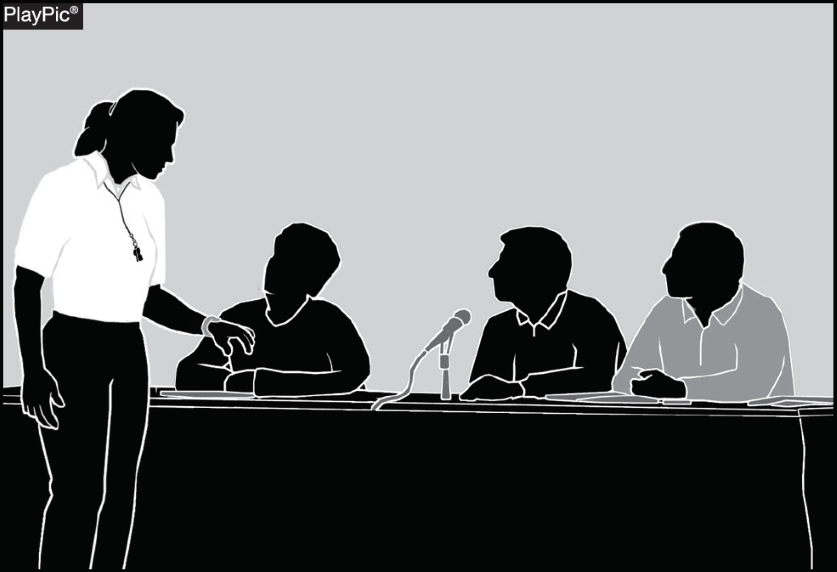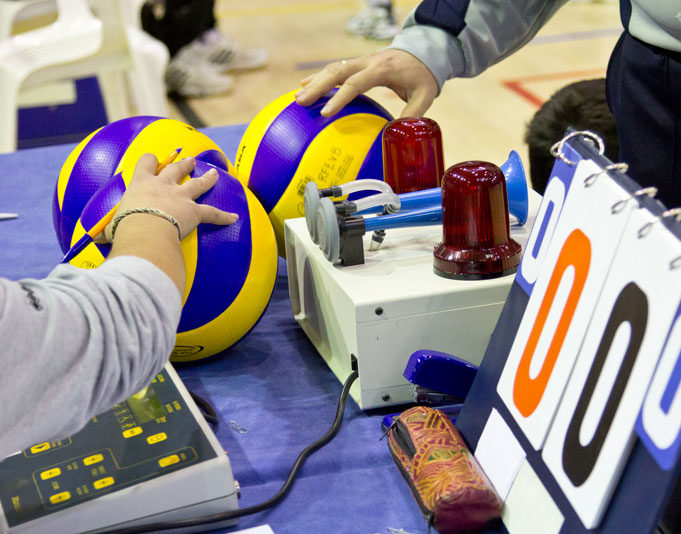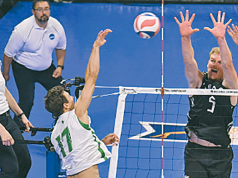Communication between the referees and the scoring crew is crucial to ensure accuracy of the score and the information recorded on the scoresheet. Double checking the score is particularly important after an unusual play, mind change or a replay.
Consider a situation in which a line judge has called a ball “out” by team A, but the first referee overrules the line judge and calls the ball “in” or calls a touch against team B. If the scorers happened to see the line judge’s decision, they may assume that team B has won the rally when, in fact, the referees may be awarding the point to team A.
Similarly, a mind change can result in the same situation. For example, the first referee whistles and calls a back-row attack by the team B setter after the setter attacks the ball to the floor on team A’s court. A point is then awarded to team A, which the scorers record. Then the first referee realizes the team B setter was actually a frontrow player and the decision is changed to award the “kill” and a point to team B.
A replay may cause the same type of confusion because the referees may award a point to one team and then realize the decision was incorrect, so they must replay the rally.
In all three cases, it is imperative for the second referee to take an extra moment to ensure the scoring crew is aware of exactly what happened, as shown in the PlayPic. Without that important communication, the scorers may fall behind during the next rally as they try to correct the recording error from the previous rally. And the scoreboard operator can’t be neglected either since the scoreboard may also need to be corrected.
The second referee must be alert when an unusual situation occurs and allow the table crew to make any necessary corrections without being rushed. Correcting a scoresheet error several rallies after the error occurred can result in a more lengthy delay; correcting it when it happens takes only a few extra seconds. And keep in mind that computerized scoring programs may take several steps to undo the previous actions and implement the correction.

What's Your Call? Leave a Comment:
Note: This article is archival in nature. Rules, interpretations, mechanics, philosophies and other information may or may not be correct for the current year.
This article is the copyright of ©Referee Enterprises, Inc., and may not be republished in whole or in part online, in print or in any capacity without expressed written permission from Referee. The article is made available for educational use by individuals.

















